Remembering The King Of The Blues One Year On
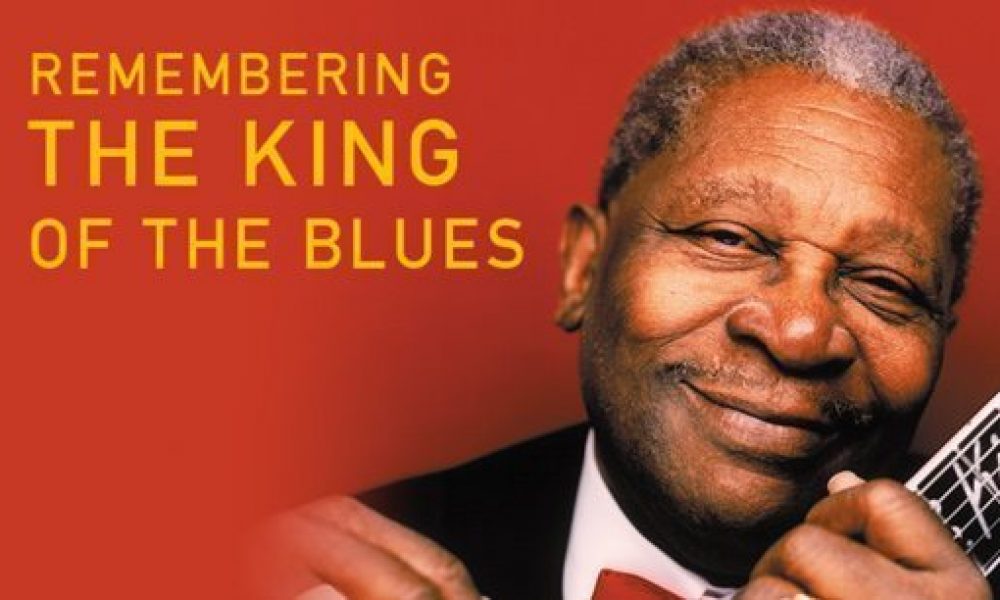
The man known to millions of blues fans around the world simply as B.B. passed away a year ago today – he was 89 years old. His passing followed a series of health scares, including being taken to hospital with a diabetes-related illness. Nevertheless, even in 2013 he was still performing 100 concerts a year, doing what he loved to do, with his guitar he named Lucille. In playing so many shows and continuing to release albums he introduced people to the music he loved and made people realize that the blues could make you happy, just as easily as they can make you sad.
Born Riley B. King in Indianola, deep in the Mississippi Delta he was the son of Alfred King and Nora Ella King and he was born in Indianola, deep in the heart of the Mississippi Delta in 1925. He was named Riley after the Irishman who owned the plantation on which his parents lived and worked. “He was named Jim O’Riley; my dad and Mr O’Riley were such good friends he named me after him, but he left the O off. When I got big enough to know about it, I asked my dad one day, ‘why is it that you named me after Mr O’Riley, why did you leave the O off?’ He said you didn’t look Irish enough!”
According to BB King, “Any time you’re born on a plantation you have no choice. Plantation first, that’s always first.“ But it was not long before The Beale Street Blues Boy, as Riley B. King became known sought to change all that. The sharecropper’s son first went to Memphis in 1946 and stayed with his cousin Bukka White, but soon returned to Indianola to work as a tractor driver.
“My salary which was the basic salary for us tractor drivers, $22 and a half a week was a lot of money compared to the other people that was working there.” – B.B. King
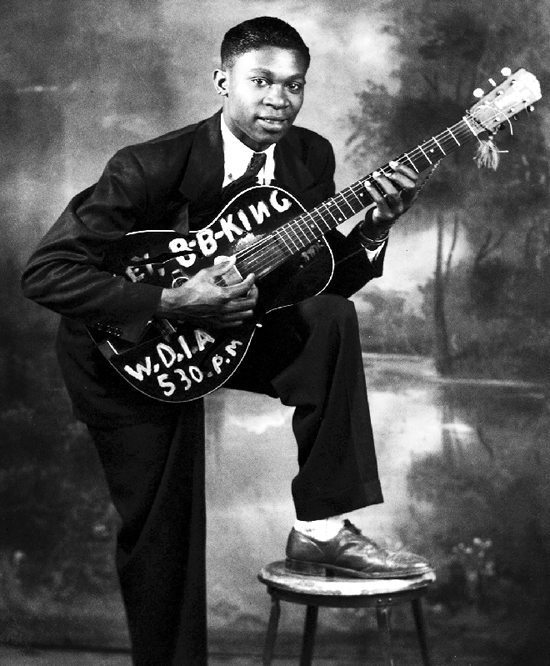
Inspired by Sonny Boy Wiliamson’s radio show young Riley moved back to Memphis in 1948. “I got to audition for Sonny Boy, it was one of the Ivory Joe Hunter songs called ‘Blues of Sunrise.’ Sonny Boy had been working out a little place called the 16th Street Grill down in West Memphis. So he asked the lady that he had been working for, her name was Miss Annie, ‘I’m going to send him down in my place tonight.’ My job was to play for the young people that didn’t gamble. The 16th Street Grill had a gambling place in the back, if a guy came and brought his girlfriend or his wife that didn’t gamble my job was to keep them happy by playing music for them to dance. They seemed to enjoy me playing, so Miss Annie said if you can get a job on the radio like Sonny Boy, I’ll give you this job and I’ll pay you $12 and a half a night. And I’ll give you six days of work, room and board. Man I couldn’t believe it.”
He began working on the radio, WDIA. “When I was a disc jockey, they use to bill me as Blues Boy, the boy from Beale Street. People would write me and instead of saying the Blues Boy, they’d just abbreviate it to B.B.” His popularity in Memphis earned him the chance to record for Bullet in 1949. His first sides were not too successful, but then Sam Phillips got B.B. into his Memphis Recording Services studio in September 1950. The Bahiri brothers visiting Memphis in search of talent signed B.B. to their RPM label, and agreed to release the sides that he had cut with Phillips. These records failed to catch hold and so Joe Bihari, the youngest brother, went to Memphis and recorded B.B. in a room at the YMCA on January 8th 1951. On a subsequent visit to Memphis Bihari recorded B.B.’s version of Lowell Fulson’s ‘Three O’clock Blues’. It entered the chart on December 29th 1951 and eventually spent 5 weeks at No.1 in early 1952. Not quite an overnight sensation, it was the start of the most successful long-running career in modern Blues history.
“We don’t play for white people. I’m not saying we won’t play for whites, because I don’t know what the future holds. Records are funny. You aim them for the colored market, then suddenly the white folks like them, then wham, you’ve got whites at your dances.” – BB King during the 1950s
In the early years of his success he stayed in Memphis where he was a big star, but not always as big as he thought he was. “We were in Memphis at the Auditorium, Elvis was there watching and performing were Bobby Bland, Little Milton, Little Junior Parker, Howlin’ Wolf and myself. Everybody had been on stage. Bobby Bland, a stage mover man, he can move the people, Little Milton and myself, you know we do what we do but we couldn’t move the crowd quickly like Bobby Bland. We had been on and now Howlin’ Wolf is up and the people are going crazy. Milton says, ‘something is going on out there’. Junior Parker says ‘lets check it out’. So Wolf is doing ‘Spoonful’, now we go out there and he’s on his knees crawling round on the floor. The people just going crazy so finally we figured out what it was; the seat of his pants was busted! And all of his business is hanging out!”
One night while BB was playing at a club in Twist Arkansas there was a fight and a stove was knocked over which set fire to the wooden building. The band and audience had rushed outside before King realised that he had left his beloved $30 guitar inside; rushing back into the burning building he managed to get his guitar even though he almost died in the process. It turned out the fight was over a woman named Lucille which is how BB’s guitar got its name; everyone of the 20 or so custom made Gibson guitars that have all been called ‘Lucille’.
Throughout the time King recorded for RPM he churned out hit after hit, topping the R&B chart three more times, until he left RPM for Kent in late 1958. Kings sojourn at Kent lasted throughout much of the 60s, and while he never again topped the R&B charts he had many hits. His sweet gospel tinged voice coupled with his brilliant single string picking proved an irresistible combination. It made King one of THE most successful artists on the R&B charts for all time.
“I’m trying to get people to see that we are our brother’s keeper; red, white, black, brown or yellow, rich or poor, we all have the blues.” – BB King
By the late 1960s BB, like his fellow blues guitar players, was discovered by the young White rock fraternity, which gave his career a a real boost. In 1970 ‘The Thrill is Gone’ made No.3 on the R&B chart, it also crossed over to the Hot 100 and became his biggest hit when it made No.15. In 1969 he visited Europe for the first of many visits; audiences, well aware of the legend’s influence on Eric Clapton, Peter Green et al, readily accepted him. King’s album Live at the Regal, recorded in 1964 had long been held in high esteem by both musicians and fans alike, on both sides of the Atlantic.
“Well B.B.’s was like a hero. The band? You listen to the way that band swings on Live at The Regal, it’s just like a steam roller.” – Mick Fleetwood
Much of B.B.’s success can be attributed to his live shows. He has always been one of the hardest working live performers, playing 250 – 300 dates a year, even in some of the lean years. He also had a knack for keeping his bands together, an indication of his skill as a bandleader, but probably a lot to do with his gracious nature as a boss.
“The guys are not only great musicians, they’re loyal to me, I’m loyal to them, and we get together and have a good time. Everybody’s been with me a long time, my late drummer, Sonny Freeman was with me around 18 years and now my senior trumpeter has been with me 21 years and everybody, except one, has been with me more than 10 years.” – B.B. King in 2000
In 1969 B.B toured America with the Rolling Stones, which for many would have been the first time they had seen one of the all time greats in the flesh. According to Bill Wyman, “We used to go on side stage and watch B.B. play. He had a 12-piece band and they were brilliant musicians. The thing that always stunned me about his playing was the way he hammered it out and then he’d just go down to a whisper. There was just silence in the place, you could hear a pin drop. He would suddenly start to build it to a big climax, that’s what I liked about his playing, the dimensions of his music.”
Throughout the 1970s, when many others found it difficult to find decent work, King was always there or thereabouts. He even appeared on TV, when almost no other blues artists could get a look in. His reputation with other guitarists gave him the position of elder statesman of the Blues. Added to which he has always been articulate in explaining the meaning of the blues, and in so doing he helped keep the fire burning when it had all but gone out. There has been criticism of King as being too smooth for the blues; sour grapes from those would have given anything to achieve a modicum of his success.
In 1988, the year after he was inducted into the Rock and Roll Hall of Fame, King worked with U2 on their album Rattle & Hum. His performance on ‘When Love Comes to Town’ proved he still had it, even at 63 years old. This was not the first time King played with others, in the 70s he played with the jazz group, The Crusaders, others he has worked with have included the blind singer Diane Schuur, Alexis Korner, Stevie Winwood and Bobby Bland. In 2001 B.B. King and Eric Clapton won a Grammy award, the two long time friends recorded the album, Riding With The King. Among the covers are ‘Worried Life Blues’ and ‘Key To The Highway’ while they also revisited ‘Three O’Clock Blues’.
BB King like many of his contemporaries was inspired by Louis Jordan to believe that a black musician could achieve great things and for many years BB spoke of wanting to record an album of the legendary bandleader’s material. In 1999 he released that album, which both acknowledges his debt to Louis and celebrates the ‘King of the Jukeboxes’ string of great hit records. The albums title appropriately is Let the Good Times Roll. It’s the song which BB King has used to open his live shows for decades.
King’s great skill has been to ride out the mood swings of modern music and continue to come up with interesting albums. He brought the Blues out of the margins and into the mainstream of American music. He took the music he heard as a kid, mixed it and matched it with a bewildering variety of other styles and played it with a huge variety of other musicians to bring the blues into the digital age.
B. B. King, above all others, was the undisputed King of the Blues, but know the King is dead and we shall never see his like again.
He opened every show with this and it’s the perfect way to remember B.B.
Visit our dedicated B.B. King artist page here



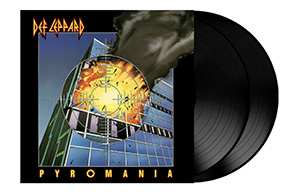
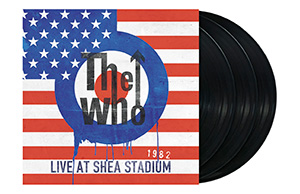



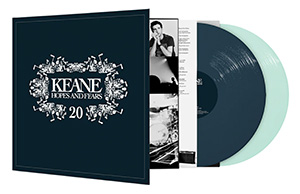
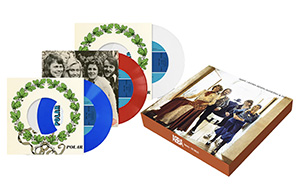
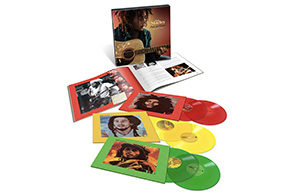
wingedream
May 15, 2015 at 2:15 pm
“Oh, if only I could play the guitar like him!”John Lennon on BB King who is no more.The Blues will go on but never shall be the same.
RIP.From Tansen-ique : Many salutations.
kelly
May 15, 2015 at 4:50 pm
For another take on his passing – check out this article.
http://www.uofmusic.com/blog/6040/bb-king-the-thrill-is-gone-but-never-forgotten
R Neil
May 16, 2015 at 3:09 am
There will never be another bb.
John Barrett
May 16, 2015 at 4:02 am
A gentle giant, an intellect apart from the grind of daily America, a true genius, and a spiritual father of mine passed onward. God Bless. I await the next adventure, sir. Love you.
Allen Hyde
May 16, 2015 at 7:49 am
In The South You Are Well None And Love By Many You Will Always Be In Our Harts Souls And Mineds May You RIP BBKing The King Of Blues. @Hyde
George Hendriks
May 16, 2015 at 12:10 pm
The world has lost a brilliant bluesman but like he wanted still has his music as his gift. Spread the blues in honour of BB and he will smile along with all the other (bluesy) guitarslingers ….another man down but never out ….
Ron Flippen
May 16, 2015 at 7:55 pm
May god pour out his blessings on BB n his family I this time of need . On a sad term please let us the fans know that his mgr. didn’t take his personal things and steal all that was reported , losing BB was bad enough.!
john G, Morris
May 19, 2015 at 2:00 pm
Everyone can learn from B.B. King R.I.P.
Stephanie B.
May 19, 2015 at 3:57 pm
He will be missed, RIP BB King!!!